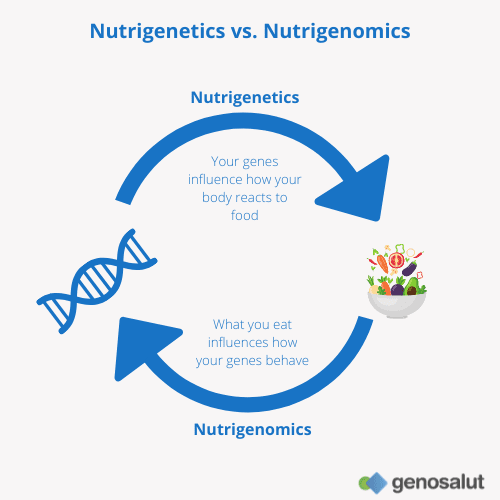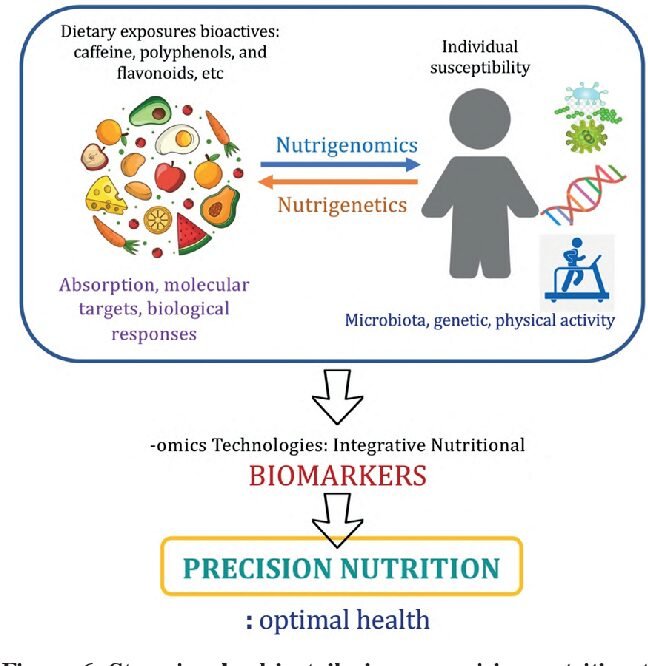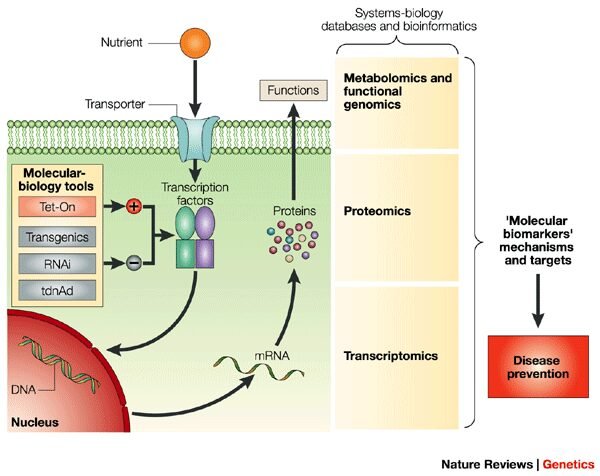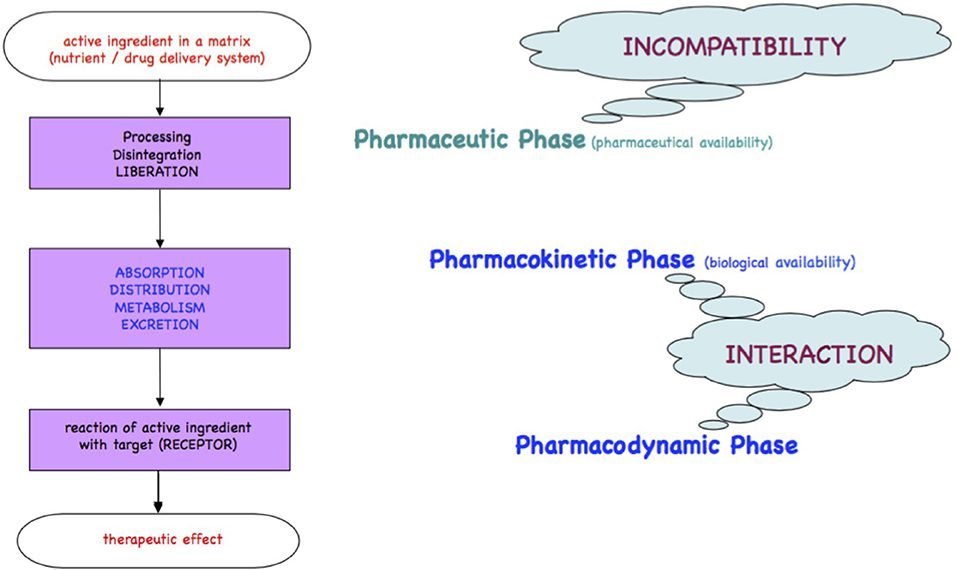Understanding how genetics can impact health is a fascinating and ever-evolving field known as nutrigenomics. Through the study of nutrigenomics, researchers aim to uncover how genetic variations can influence our individual responses to diet. This article aims to explore the intricate relationship between genetics and nutrition, delving into the applications, challenges, and future prospects of nutrigenomics. By understanding how specific genes interact with dietary factors, we can tailor personalized nutrition strategies to optimize health outcomes. From disease prevention and management to performance enhancement, nutrigenomics has the potential to revolutionize how we approach our health and well-being.
Understanding Nutrigenomics
Definition and Scope of Nutrigenomics
Nutrigenomics is a multidisciplinary field that explores the influence of genetic variations on an individual’s responses to diet. It encompasses the study of how specific genes interact with dietary factors, ultimately shaping the body’s processing and response to nutrients. By understanding the genetic factors that impact dietary responses, researchers hope to develop personalized nutrition strategies that optimize health outcomes based on an individual’s unique genetic profile.
Explanation of Gene-Diet Interactions
Gene-diet interactions refer to the intricate interplay between specific genes and dietary factors. Certain genes can influence how the body absorbs, metabolizes, and responds to different nutrients. For example, variations in genes involved in lipid metabolism can affect an individual’s response to dietary fat intake. Understanding these interactions can help tailor dietary recommendations to individuals, taking into account their genetic predispositions and optimizing the effectiveness of nutritional interventions.
Introduction to Key Concepts such as Gene Expression and Epigenetics
Two key concepts in nutrigenomics are gene expression and epigenetics. Gene expression refers to the process by which genes are activated or deactivated, leading to the production of specific proteins or enzymes. Diet can influence gene expression, with certain nutrients or bioactive compounds having the ability to turn genes on or off. Epigenetics, on the other hand, refers to the study of heritable changes in gene activity and expression that do not involve changes to the underlying DNA sequence. Epigenetic modifications can be influenced by various factors, including diet, and play a crucial role in shaping an individual’s nutritional needs and responses.
Applications of Nutrigenomics
Health Implications of Nutrigenomics
Nutrigenomics has significant implications for overall health and well-being. By understanding an individual’s genetic variations, healthcare professionals can develop personalized dietary plans that optimize health outcomes. For example, individuals with gene variations that affect carbohydrate metabolism may benefit from a diet that is tailored to their specific needs, promoting better blood sugar control and reducing the risk of developing conditions such as diabetes. By utilizing nutrigenomics, individuals can take a proactive approach to their health, embracing customized dietary plans that address their unique genetic makeup.
Nutrigenomics in Disease Prevention and Management
One of the most promising applications of nutrigenomics is in disease prevention and management. By identifying genetic variations that are associated with increased risk for certain diseases, personalized nutrition interventions can be developed to mitigate those risks. For instance, individuals with a genetic predisposition to obesity may benefit from dietary plans that prioritize certain macronutrients and limit others. Nutrigenomics can also play a role in the management of existing health conditions, such as diabetes. By understanding the genetic factors that influence an individual’s response to specific nutrients, healthcare professionals can tailor dietary recommendations to optimize blood sugar control and overall health outcomes.
Performance Enhancement through Understanding Nutrigenomics
Athletes and those striving for enhanced physical performance can benefit from an understanding of nutrigenomics. By identifying genetic variations that impact factors such as muscle recovery, nutrient utilization, and energy metabolism, personalized nutrition strategies can be developed to optimize athletic performance. For example, individuals with certain genetic variations may require higher levels of specific nutrients, such as protein or certain vitamins, to support muscle growth and repair. By fine-tuning nutritional intake based on an individual’s genetic profile, nutrigenomics can contribute to improved athletic performance and recovery.

This image is property of www.genosalut.com.
Challenges and Limitations of Nutrigenomics
Addressing Ethical Considerations
As nutrigenomics progresses, it is essential to address ethical considerations regarding the use of genetic information in personalized nutrition. This includes ensuring the privacy and confidentiality of individuals’ genetic data and obtaining informed consent before conducting genetic testing. Additionally, clear guidelines and regulations should be in place to prevent the misuse or inappropriate commercialization of genetic information. By upholding ethical standards, nutrigenomics can continue to advance while prioritizing the well-being and autonomy of individuals.
Access and Affordability Challenges
One of the challenges in the widespread implementation of nutrigenomics is ensuring access and affordability for diverse populations. Genetic testing and personalized nutrition services can be costly, making them inaccessible to many individuals. Efforts should be made to make these services more affordable and widely available, ensuring that the benefits of nutrigenomics are not limited to a privileged few. Collaborations between researchers, healthcare providers, and policymakers are crucial in overcoming these challenges and ensuring equitable access to the benefits of nutrigenomics.
Complexity of Gene-Diet Interactions and Existing Limitations
The interplay between genes and dietary factors is incredibly complex, and much is still unknown about the precise mechanisms and interactions involved. Nutrigenomics research is currently limited by several factors, including the large number of genes involved, the influence of environmental factors, and the challenges in conducting large-scale studies. Further research is needed to unravel the intricacies of gene-diet interactions, which will require interdisciplinary collaboration and technological advancements. It is important to acknowledge these limitations while remaining optimistic about the future potential of nutrigenomics.
Future Directions and Opportunities in Nutrigenomics
Advancements in Technology and Their Impact on Nutrigenomics
Advancements in technology, such as advanced sequencing techniques, have the potential to revolutionize nutrigenomics research. Next-generation sequencing methods allow for the rapid and cost-effective analysis of large amounts of genetic data, enabling researchers to identify genetic variations associated with dietary responses more efficiently. Additionally, technological advancements in data analysis and bioinformatics are enhancing our understanding of gene-diet interactions. These advancements open up exciting opportunities for further exploration and refinement of personalized nutrition strategies based on an individual’s genetic profile.
Integration of Nutrigenomics with Healthcare
The integration of nutrigenomics into mainstream healthcare practices holds great promise for the future of preventive medicine and wellness programs. By incorporating genetic information into routine healthcare assessments, healthcare professionals can develop personalized dietary plans that address an individual’s specific genetic predispositions. This integration can lead to more targeted approaches in disease prevention and management, improving health outcomes and reducing healthcare costs. Close collaboration between researchers, healthcare providers, and policymakers is necessary to ensure the seamless integration of nutrigenomics into healthcare systems for the benefit of all individuals.
Importance of Public Education and Awareness about Nutrigenomics
Public education and awareness play a crucial role in the successful implementation of nutrigenomics. It is important to educate the general public about the potential of nutrigenomics in optimizing health outcomes and improving overall well-being. This includes raising awareness about the scientific foundations of nutrigenomics, debunking misconceptions, and emphasizing the importance of personalized nutrition strategies. By fostering a greater understanding of nutrigenomics, individuals can make informed decisions about their health and actively participate in their personalized nutrition journey.

This image is property of d3i71xaburhd42.cloudfront.net.
Genetic Variations and Dietary Responses
Impact of Specific Gene Variations on Dietary Responses
Genetic variations can have a significant impact on an individual’s dietary responses. Variations in genes involved in nutrient metabolism, such as those responsible for metabolizing fats, carbohydrates, and proteins, can influence how the body processes and responds to specific nutrients. For example, certain variations in the FTO gene have been associated with increased susceptibility to obesity and a reduced ability to feel full after meals. By understanding these genetic variations, personalized dietary recommendations can be developed to mitigate the effects and promote optimal dietary responses.
How Gene Variations Influence Nutrient Absorption and Processing
Gene variations can affect nutrient absorption and processing, influencing an individual’s nutritional needs and responses. For instance, variations in genes involved in the absorption of dietary iron can impact an individual’s risk of developing iron deficiency anemia. Understanding an individual’s genetic predisposition to certain nutrient deficiencies can inform dietary recommendations, such as incorporating specific food sources or considering supplementation. By tailoring nutritional plans based on gene variations, one can optimize nutrient absorption, utilization, and overall health.
Examples of Genes that Influence Dietary Responses
Several genes have been identified to play a role in influencing dietary responses. For instance, the MC4R gene is involved in regulating appetite and energy expenditure, and variations in this gene have been associated with an increased risk of obesity. Another example is the CYP1A2 gene, which codes for a liver enzyme involved in caffeine metabolism. Variations in this gene can influence an individual’s sensitivity to caffeine and their ability to metabolize it efficiently. These are just a few examples of how specific genes can impact dietary responses, highlighting the complex relationship between genetics and nutrition.
Role of Epigenetics
Understanding the Concept of Epigenetics
Epigenetics is a field of study that examines heritable changes in gene activity and expression that do not involve changes in the underlying DNA sequence. Epigenetic modifications can be influenced by various factors, including diet, lifestyle, and environmental exposures. These modifications can have a profound impact on an individual’s nutritional needs and responses. By understanding how epigenetic modifications are influenced by dietary factors, researchers can develop tailored dietary strategies that optimize gene expression and support optimal health outcomes.
Influence of Epigenetics on Nutritional Needs and Responses
Epigenetic modifications can profoundly influence an individual’s nutritional needs and responses. For example, certain dietary factors, such as the levels of certain nutrients or bioactive compounds, can influence epigenetic modifications that impact gene expression. This, in turn, can shape an individual’s nutrient requirements, metabolism, and overall health. By considering the dynamic nature of epigenetics, personalized nutrition strategies can be developed that take into account an individual’s specific epigenetic profile, optimizing nutrient utilization and promoting overall well-being.
Epigenetics as an Integral Component of Personalized Nutrition Strategies
Epigenetics plays an integral role in the development of personalized nutrition strategies. By considering an individual’s unique epigenetic profile, healthcare professionals can tailor dietary recommendations to optimize gene expression and support optimal health outcomes. For example, individuals with epigenetic modifications that affect lipid metabolism may benefit from dietary interventions that focus on specific types of fats and their ratios. Incorporating epigenetic considerations into personalized nutrition strategies can enhance the effectiveness of dietary interventions and contribute to improved health outcomes.

This image is property of media.springernature.com.
Genetic Information in Personalized Nutrition
Use of Genetic Information in Planning Personalized Diets
Genetic information can be utilized to develop personalized dietary plans that effectively address an individual’s specific genetic variations. Genetic testing can provide valuable insights into an individual’s unique genetic makeup, allowing healthcare professionals to identify genetic predispositions that may influence dietary responses. This information can then be used to tailor dietary recommendations, considering factors such as macronutrient ratios, food intolerances, and nutrient needs. By utilizing genetic information, personalized diets can be created to optimize nutrient absorption, metabolism, and overall health.
Genetic Considerations in Optimizing Health Outcomes through Nutrition
Genetic considerations are essential in optimizing health outcomes through nutrition. By understanding an individual’s genetic variations, healthcare professionals can identify specific dietary recommendations that can help mitigate the impact of genetic predispositions on health. For example, individuals with a genetic variation associated with reduced folate metabolism may benefit from increased dietary folate intake or supplementation to support overall health and reduce the risk of certain health conditions. By incorporating genetic considerations into nutritional interventions, personalized nutrition strategies can be developed that maximize health benefits.
Ethical Issues Related to the Use of Genetic Information in Nutrition
The use of genetic information in nutrition raises important ethical considerations. Privacy and data security are paramount, and individuals must have control over who can access their genetic information. Additionally, clear guidelines and regulations must be in place to ensure the ethical use of genetic information in personalized nutrition. Genetic testing and counseling should be conducted with informed consent, transparency, and respect for individuals’ autonomy. By upholding ethical standards, the integration of genetic information in nutrition can serve as a powerful tool in optimizing health outcomes while ensuring the well-being and rights of individuals.
Disease Prevention and Management Through Nutrigenomics
Role of Nutrigenomics in Preventing Obesity
Nutrigenomics plays a vital role in preventing obesity, a growing global health concern. By understanding the genetic factors that influence an individual’s susceptibility to obesity, personalized dietary interventions can be developed to address these specific genetic variations. For example, individuals with a genetic predisposition to obesity may benefit from dietary plans that prioritize certain macronutrients, such as protein or fiber, and limit others, such as simple carbohydrates or saturated fats. By tailoring dietary recommendations to an individual’s genetic profile, nutrigenomics can contribute to a more targeted and effective approach to preventing and managing obesity.
Management of Diabetes Through Nutrigenomics
Nutrigenomics offers promising opportunities for the management of diabetes. By identifying genetic variations that impact an individual’s response to specific nutrients, personalized dietary plans can be developed to optimize blood sugar control and overall health outcomes. For instance, individuals with genetic variations that affect insulin sensitivity may benefit from a diet that includes specific foods or nutrients that support insulin function. Additionally, understanding how genetics influence the body’s response to dietary factors can inform targeted interventions that mitigate the risk of complications associated with diabetes. Nutrigenomics can, therefore, play a significant role in improving diabetes management and promoting better overall health.
Nutrigenomic Interventions for Cardiovascular Diseases
Cardiovascular diseases, such as heart disease and stroke, are major contributors to global morbidity and mortality. Nutrigenomics can inform interventions aimed at preventing and managing these conditions. By identifying genetic variations associated with increased cardiovascular disease risk, personalized dietary recommendations can be developed. For example, individuals with genetic variations that impact blood lipid metabolism may benefit from dietary plans that prioritize heart-healthy fats, such as monounsaturated fats, and limit saturated fats. Furthermore, understanding the genetic factors that contribute to cardiovascular diseases can inform targeted interventions that address specific risk factors, such as inflammation or oxidative stress. Nutrigenomics holds promise in improving cardiovascular health outcomes and reducing the burden of these diseases.

This image is property of www.frontiersin.org.
Emerging Technologies in Nutrigenomics
Impact of Advanced Sequencing Techniques on Nutrigenomics
Advanced sequencing techniques have revolutionized nutrigenomics research. Next-generation sequencing methods, such as whole-genome sequencing and targeted gene panels, allow for the efficient and cost-effective analysis of large amounts of genetic data. These techniques enable researchers to identify genetic variations associated with dietary responses more comprehensively and accurately. The increased accessibility of advanced sequencing techniques has accelerated nutrigenomics research, opening up new possibilities for understanding gene-diet interactions and developing personalized nutrition strategies based on an individual’s unique genetic profile.
Role of Artificial Intelligence in Advancing Nutrigenomics
Artificial intelligence (AI) has the potential to advance nutrigenomics by analyzing complex data sets and predicting personalized dietary recommendations. AI algorithms can analyze genetic information, dietary data, and health outcomes to identify patterns and develop predictive models. By incorporating AI into nutrigenomics research, researchers can gain deeper insights into genetic variations, gene-diet interactions, and individual responses to nutrition. AI-powered platforms can also facilitate the translation of nutrigenomics research into practical applications, such as user-friendly apps or smart devices that provide real-time personalized dietary guidance.
Potential Challenges and Opportunities Offered by New Technologies in Nutrigenomics
While new technologies in nutrigenomics offer immense opportunities, they also present challenges that need to be addressed. The ever-increasing amount of genetic data generated by advanced sequencing techniques requires sophisticated data analysis and interpretation. Ensuring data privacy and security is of utmost importance as personalized genetic information is incorporated into digital platforms and healthcare systems. Additionally, the equitable distribution of technological advancements in nutrigenomics is crucial to avoid exacerbating existing health disparities. By addressing these challenges and maximizing the opportunities offered by new technologies, nutrigenomics can continue to advance and transform personalized health and nutrition practices.
Conclusion: The Role of Nutrigenomics in Health
Recap of the Significance of Nutrigenomics in Health
Nutrigenomics holds significant promise in unraveling the intricate relationship between genetics and nutrition. By understanding how genetic variations impact dietary responses, personalized nutrition strategies can be developed that optimize health outcomes. Nutrigenomics allows for the customization of dietary plans based on an individual’s unique genetic profile, addressing specific genetic predispositions and maximizing the effectiveness of nutritional interventions. This personalized approach has the potential to revolutionize health and wellness by enabling targeted interventions for disease prevention and management, enhancing athletic performance, and improving overall well-being.
Call to Action for Research, Education, and Integration of Nutrigenomics
To fully harness the potential of nutrigenomics, further research, education, and integration into healthcare systems and dietary practices are needed. Continued research is crucial in unraveling the complexities of gene-diet interactions, refining personalized nutrition strategies, and identifying new genetic variations that impact health outcomes. Public education and awareness about nutrigenomics are essential to ensure that individuals are informed and empowered to make decisions regarding their personalized nutrition journey. Additionally, the integration of nutrigenomics into healthcare systems and dietary practices requires collaboration between researchers, healthcare providers, policymakers, and other stakeholders. By actively pursuing these avenues, we can embrace the transformative power of nutrigenomics and optimize personalized health and nutrition on a global scale.
Potential of Nutrigenomics to Revolutionize Personalized Health and Nutrition
Nutrigenomics has the potential to revolutionize personalized health and nutrition by taking into account an individual’s unique genetic makeup. By understanding how genetic variations influence dietary responses, healthcare professionals can develop targeted interventions that optimize nutrient absorption, metabolism, and overall health. This personalized approach has the potential to improve the prevention and management of various health conditions and enhance athletic performance. Through continued research, education, and integration into healthcare systems, nutrigenomics can be harnessed to revolutionize personalized health, shaping the future of nutrition science and optimizing individual health outcomes.




